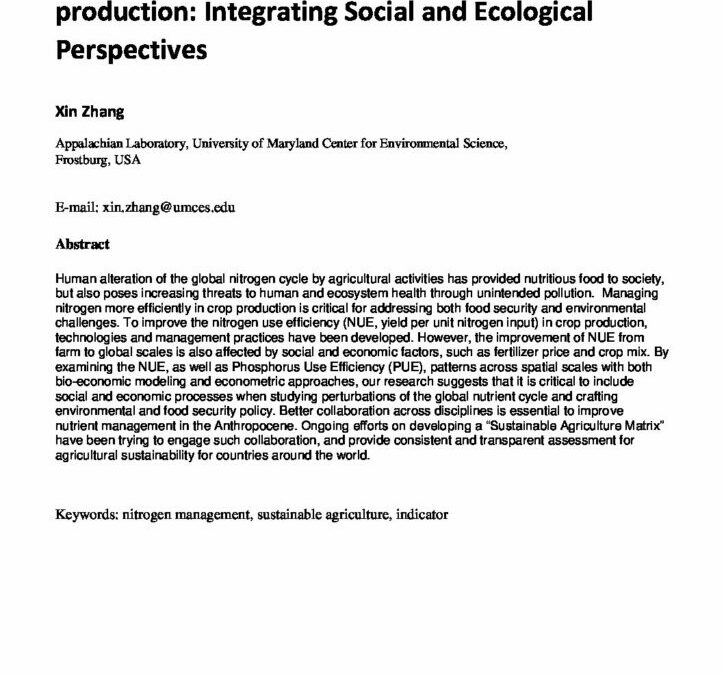Managing Nitrogen for sustainable agriculture production

Human alteration of the global nitrogen cycle by agricultural activities has provided nutritious food to society, but also poses increasing threats to human and ecosystem health through unintended pollution. Managing nitrogen more efficiently in crop production is critical for addressing both food security and environmental challenges. To improve the nitrogen use efficiency (NUE, yield per unit nitrogen input) in crop production, technologies and management practices have been developed. However, the improvement of NUE from farm to global scales is also affected by social and economic factors, such as fertilizer price and crop mix.
By examining the NUE, as well as Phosphorus Use Efficiency (PUE), patterns across spatial scales with both bio-economic modeling and econometric approaches, our research suggests that it is critical to include social and economic processes when studying perturbations of the global nutrient cycle and crafting environmental and food security policy. Better collaboration across disciplines is essential to improve nutrient management in the Anthropocene. Ongoing efforts on developing a “Sustainable Agriculture Matrix” have been trying to engage such collaboration, and provide consistent and transparent assessment for agricultural sustainability for countries around the world.
